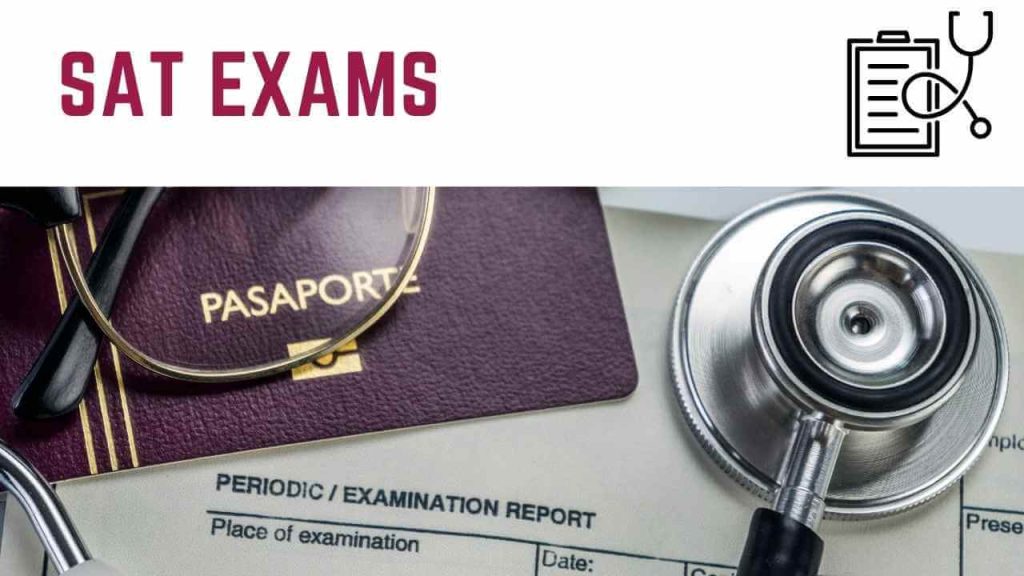
SAT Exam
The SAT Exam is a standardized test used for college admissions, measuring skills in reading, writing, and math. It helps colleges assess academic readiness. Proper preparation can improve scores and increase admission chances.
Understanding SAT Exams – A Key to College Admissions
The SAT Exam is one of the most widely recognized tests in the United States and around the world. It plays a pivotal role in college admissions, helping universities assess students’ readiness for academic challenges. In this article, we’ll dive into the importance of SAT exams, their structure, and how you can best prepare for them.
What Are SAT Exams?
The SAT (Scholastic Assessment Test) is a standardized test designed to evaluate a student’s skills in reading, writing, and math. It is commonly taken by high school students as a part of the college admissions process in the United States, though many institutions around the world also recognize it. SAT scores can complement your high school grades and other achievements to provide a comprehensive picture of your academic potential.
Importance of the SAT Exam
- College Admissions: Many colleges and universities use SAT scores to evaluate applicants alongside high school GPA, extracurricular activities, and personal essays. A strong SAT score can enhance your application, helping you stand out in a competitive pool of applicants.
- Scholarships: Several merit-based scholarships are awarded based on SAT scores. High scores can increase your chances of receiving financial aid, making college more affordable.
- Benchmark for Readiness: The SAT exam helps colleges assess your preparedness for the academic rigor of higher education. A high score indicates strong skills in key areas that will be crucial during your college courses.
Structure of the SAT Exam
The SAT exam consists of three main sections:
- Reading: This section evaluates your ability to comprehend and analyze written texts. You’ll be asked to answer questions related to various passages, testing your critical thinking and reading skills.
- Writing and Language: Here, you’ll need to demonstrate your ability to edit and improve texts. This section focuses on grammar, punctuation, and sentence structure, as well as your understanding of language conventions.
- Math: The math section is divided into two parts—one that allows the use of a calculator and one that doesn’t. It tests your knowledge of algebra, problem-solving, and data analysis, along with more advanced topics like trigonometry and geometry.
- Essay (Optional): While no longer mandatory, the SAT essay allows students to showcase their writing skills. You’ll be asked to analyze a passage and explain how the author builds an argument, providing insight into your ability to think critically and express ideas clearly.
SAT Scoring System
The SAT is scored on a scale of 400 to 1600, with two main sections: Math (scored from 200 to 800) and Evidence-Based Reading and Writing (scored from 200 to 800). The optional essay is scored separately. A higher score indicates stronger skills in the tested areas.
Tips for Preparing for the SAT Exam
- Take Practice Tests: Familiarize yourself with the test format and time constraints by taking official SAT practice tests. This will help you get a sense of the questions, structure, and pacing of the exam.
- Focus on Weak Areas: Identify the subjects where you need improvement and dedicate extra time to studying those areas. Whether it’s math, reading comprehension, or writing, focusing on weak spots can significantly boost your score.
- Use Study Materials: Utilize study guides, online resources, and SAT prep courses. Official SAT practice materials, such as those available on the College Board website, offer an excellent starting point.
- Time Management: The SAT is a timed exam, and time management is crucial. Practice pacing yourself so you can answer all the questions within the allotted time.
- Get Adequate Rest: Ensure you’re well-rested before exam day. Mental clarity and focus are key to performing well under pressure.
Why Take the SAT Exam?
The SAT exam is widely recognized by most colleges and universities, particularly in the United States. Here are a few reasons why taking the SAT is essential:
- Standardized Assessment: SAT scores offer colleges a standardized way of comparing applicants from different schools and backgrounds.
- Broader College Options: Many competitive colleges require or recommend SAT scores for admission, and it could be the key to opening doors to prestigious institutions.
- Scholarship Opportunities: A high SAT score can increase your chances of qualifying for scholarships, helping you reduce the cost of your college education.
Conclusion
Taking the SAT exam is an important step toward pursuing higher education. It helps showcase your academic abilities and can significantly impact your chances of admission to top colleges and universities. With careful preparation, practice, and a focused approach, you can improve your SAT scores and enhance your college application.
For students who are planning to take the SAT, it’s never too early to start preparing. Build a study plan, practice regularly, and remember that the SAT is an opportunity to demonstrate your academic readiness for the next chapter in your educational journey.





